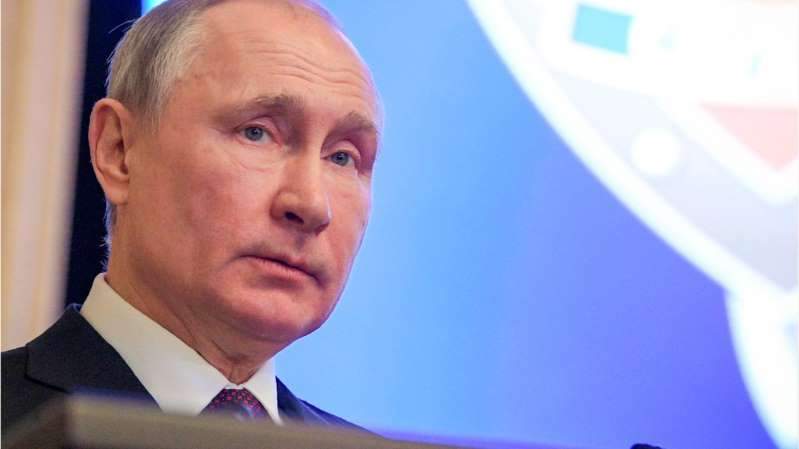Putin asks court to amend constitution, allow him to remain in power until 2036

Russian President Vladimir Putin has formally asked the country's consitutional court to approve an amendment that could allow him to remain in power for another 16 years.
Earlier this week, the 67-year-old Putin, who has dominated Russia’s political landscape for two decades as either president or prime minister, made an appearance in parliament to back an amendment that would allow him to ignore a constitutional ban on him running again in 2024.
On Wednesday, both houses of parliament overwhelmingly backed the changes that could keep Putin in power until 2035 if he won and completed two more terms as president.
The move would make him ruler of Russia for 36 years – the longest tenure in the country’s modern history. He is currently the longest-serving leader since Josef Stalin.
The Kremlin said in a statement Saturday that Putin had signed off on the constitutional changes. However, now Russia’s constitutional court must now rule whether the changes are legal ahead of a planned nationwide vote on the amendments to the constitution planned for April 22.
Under the current law, Putin would not be able to run for president again in 2024 because of term limits. The new measure would effectively reset his term count to zero, allowing him to fun for two more six-year terms.
A former KGB officer, Putin served two presidential terms in 2000-2008 before shifting to the Russian prime minister’s office while protégé Dmitry Medvedev served as a placeholder president.
He reclaimed the presidency in 2012 and won another election in 2018.
During his appearance in parliament on Tuesday, Putin – who has not said whether he will run again in 2024 – said Russia needs stability above all.
“The president is a guarantor of security of our state, its internal stability, and evolutionary development,” he said. “We have had enough revolutions.”
A series of constitutional amendments Putin proposed in January was widely seen by Kremlin foes as part of his efforts to stay in power. However, it wasn’t clear until Tuesday how Putin could achieve this goal.
Other constitutional changes further strengthen the presidency and emphasize the priority of Russian law over international norms. The changes also outlaw same-sex marriage and mention “a belief in God” as one of Russia’s traditional values.
Photo: © Provided by FOX News Who is Vladimir Putin? Find out how the Russian President became the country's dominant political figure.











